Municipal Expanded Youth Leadership and Governance Program: Strengthening Local Governance for Adolescent Health
From September 25 to 27, 2024, municipal leaders from Samar and Southern Leyte gathered at the Ramada Hotel in Binondo, Manila, for the Municipal Expanded Youth Leadership and Governance Program (MEYLGP) Module 2. This three-day training aimed at addressing adolescent pregnancy through stronger governance and collaboration among local officials.
The MEYLGP is designed to enhance the capacity of local leaders over a 24-month period, providing them with two training modules and practical applications. This initiative supports local government units (LGUs) in strengthening adolescent and youth sexual and reproductive health (AYSRH) systems by applying multi-level interventions.
During the event’s opening, Roland Paul Junio from UNFPA delivered remarks that stressed the importance of bridging national policies with on-the-ground implementation. He encouraged municipal leaders to prioritize interventions that directly benefit adolescents in their communities, highlighting the pressing need for local actions that align with broader policy goals.
Municipal Progress Reports: Calbayog and Catbalogan Cities
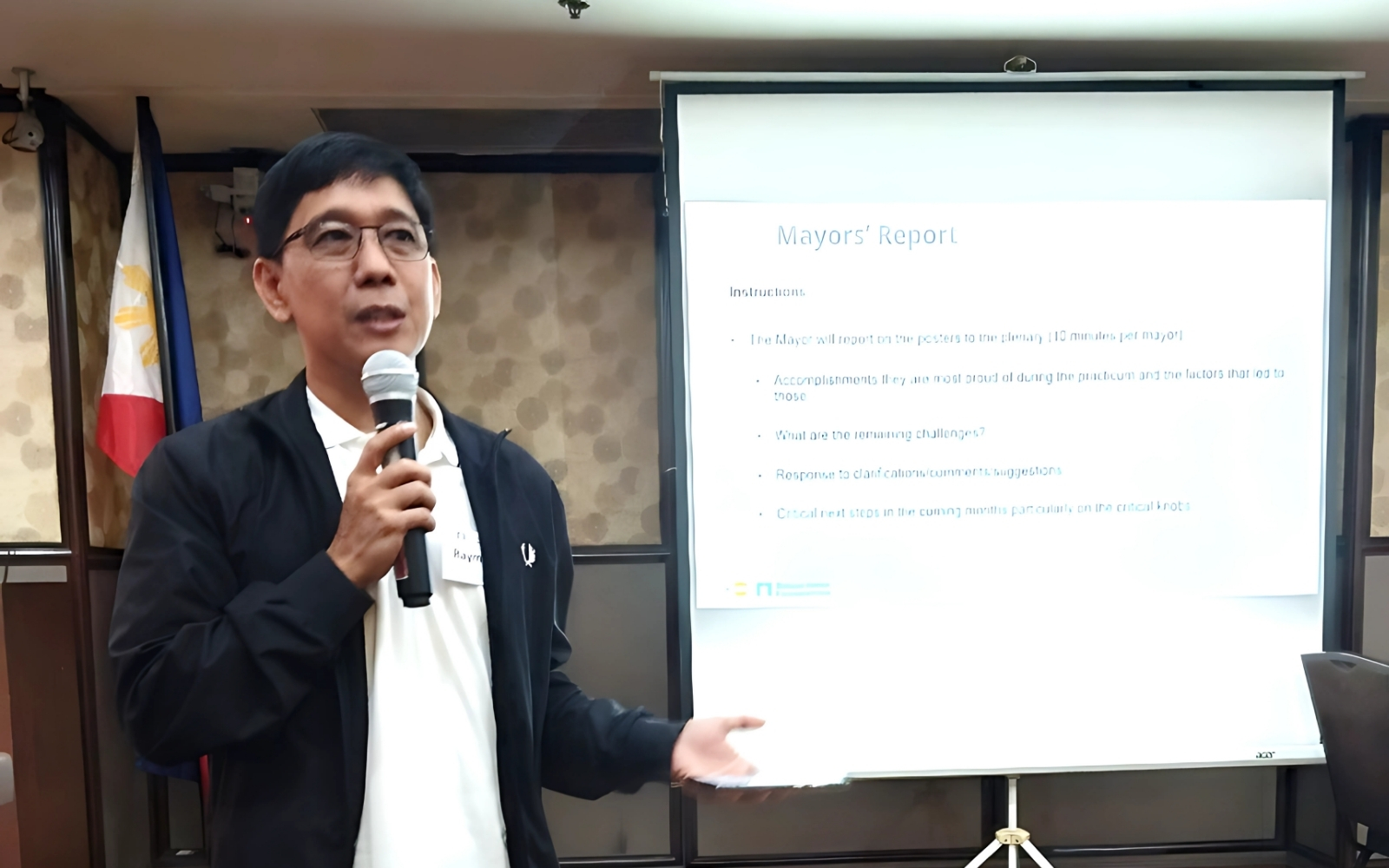
One of the key moments during the training was the presentation of progress reports from mayors. Mayor Raymond Uy of Calbayog shared significant results, noting a reduction in the adolescent birth rate from 26% in 2022 to 11% in 2023. His leadership established a Local Youth Development Office (LYDO) aimed at improving youth services. However, Mayor Uy acknowledged challenges, including limited access to modern contraceptives and difficulties in tracking pregnancies due to disruptions caused by barangay elections. He emphasized the importance of improving data analysis and strengthening guiding coalitions to address these gaps.
Similarly, Mayor Dexter Uy of Catbalogan shared his city’s successes in launching adolescent-friendly health initiatives and conducting medical missions. He reported that two barangays are now set to receive Level 1 Adolescent-Friendly Health Facility accreditation, and a Key Assistance for Developing Adolescents (KADA) network had been established to strengthen services for youth. Mayor Uy underscored the city’s commitment to continue these efforts, calling for sustained action to reduce adolescent pregnancies and improve health outcomes.
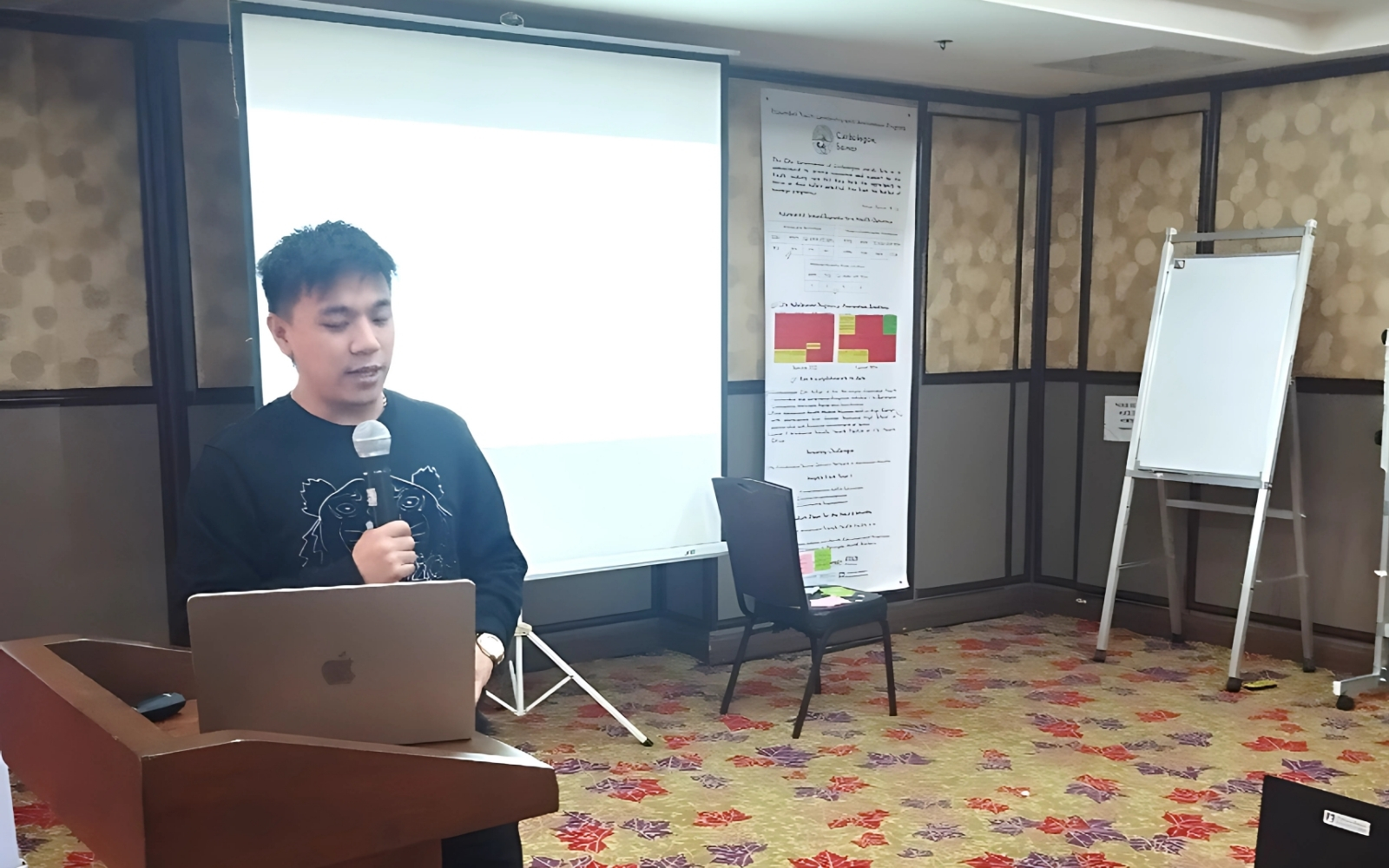
Action Planning for Addressing Challenges in Adolescent Health
The core of Module 2 focused on creating actionable plans to address ongoing challenges in adolescent health. The municipal leaders engaged in discussions, formulating specific and measurable actions tailored to the needs of their localities. In Basay, for example, leaders planned to establish a strong guiding coalition with clearly defined roles and responsibilities, while also improving data collection and conducting community walks to raise awareness of AYSRH programs. They also aimed to increase adolescent access to services and use social media to campaign against selling alcohol to minors.
In Catbalogan, leaders committed to revitalizing their guiding coalition and passing a KADA Ordinance at the barangay level, aiming to engage all 57 barangays in the process. They also planned to integrate health information systems through Barangay Health Workers (BHWs), ensuring that at least one primary health care facility would meet adolescent-friendly standards. A series of community forums would also be held to promote AYSRH and monitor the effectiveness of these outreach programs.
In Paranas, the action plan focused on collaborating with the Department of Education (DepEd) to conduct school-based AYSRH symposiums. Local leaders also aimed to train youth peer educators and renovate their teen center to meet the necessary standards for adolescent-friendly facility accreditation. Meanwhile, Villareal municipal leaders worked on formalizing their guiding coalition team and securing a location for a teen hub, targeting two high schools for ASRH initiatives.
Calbayog City’s leaders, meanwhile, prioritized the effective use of funds already allocated to the City Health Office and planned to establish better data collection mechanisms to track adolescent health trends. They also outlined plans for community workshops to promote AYSRH, starting with pilot barangays before expanding the initiative citywide.
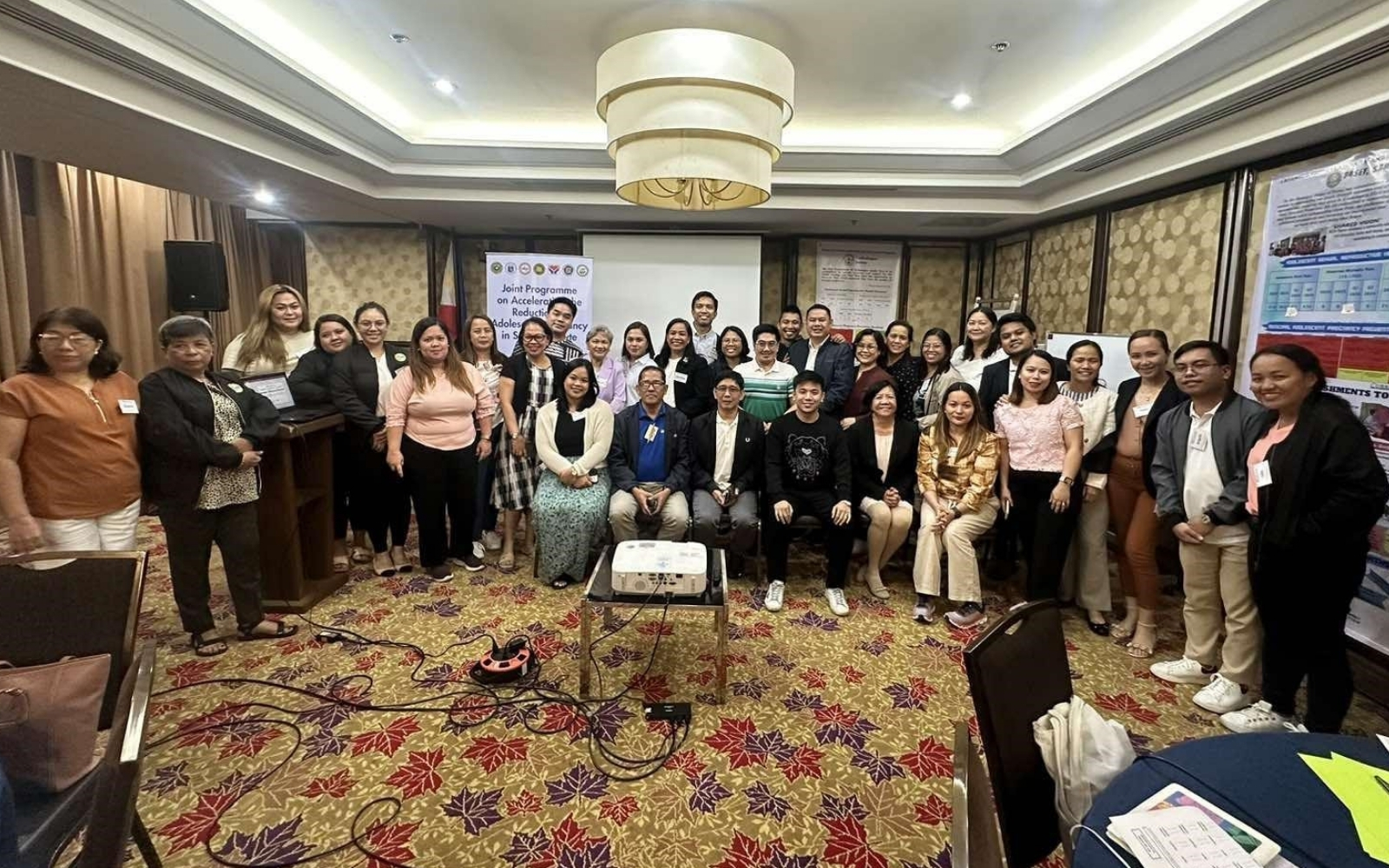
The MEYLGP Module 2 provided a platform not only to equip municipal leaders with the tools they needed but also to foster collaboration among them. Armed with their action plans and backed by ongoing mentorship, they aim to create healthier, more supportive environments for adolescents in Samar and Southern Leyte.
Connecting the Dots: Overcoming Health Information System Challenges in Achieving Universal Health Care
The Zuellig Family Foundation (ZFF) held a two-day event at Bayview Hotel Manila on September 19-20, 2024, to discuss how integrated health information systems (iHIS) can help achieve Universal Health Care (UHC). As part of ZFF’s Bayang Malusog Community of Practice, this technical session gathered Provincial Health Officers, Department of Health (DOH) representatives and UHC Coordinators from Regions 1, 6, 8, Cordillera Administrative Region and Caraga Region to share insights and work together to address the challenges of implementing iHIS across the country.
The event opened with a welcome from Dr. Anthony Faraon, ZFF’s Deputy Executive Director, who urged participants to “make IT happen” by focusing on data and technology to streamline healthcare services. Throughout the event, discussions focused on the need for interoperable HIS—systems that can communicate across hospitals, rural health units (RHUs), and government agencies like the Department of Health (DOH) and PhilHealth. Below are some key insights from the event.
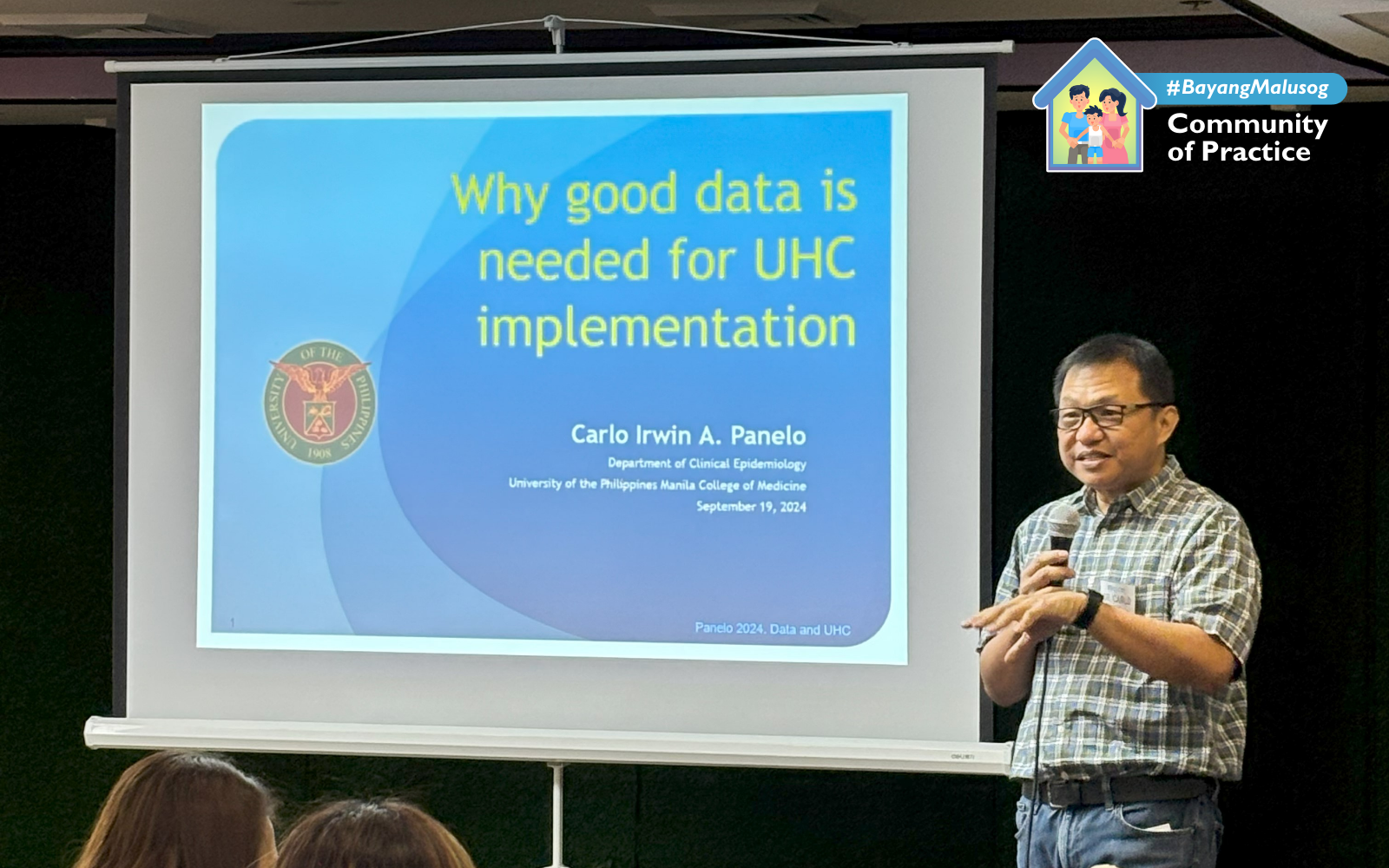
1. Overcoming barriers to interoperable systems. Participants shared similar frustrations about non-interoperable systems, inconsistent internet access, and outdated or insufficient IT infrastructure. These barriers make it difficult for healthcare providers to access patient data in real-time, impacting the efficiency and responsiveness of health services. Several participants agreed that stronger investments in IT infrastructure and training are needed to enable seamless data sharing.
2. Addressing the IT capacity gap. One of the main challenges discussed was the lack of trained IT personnel at the local health unit level. Many RHUs still have staff members who are not computer literate, and there are few dedicated IT personnel to manage HIS. This skills gap limits the ability of local health facilities to effectively use electronic medical records (eMR) and other health data tools.
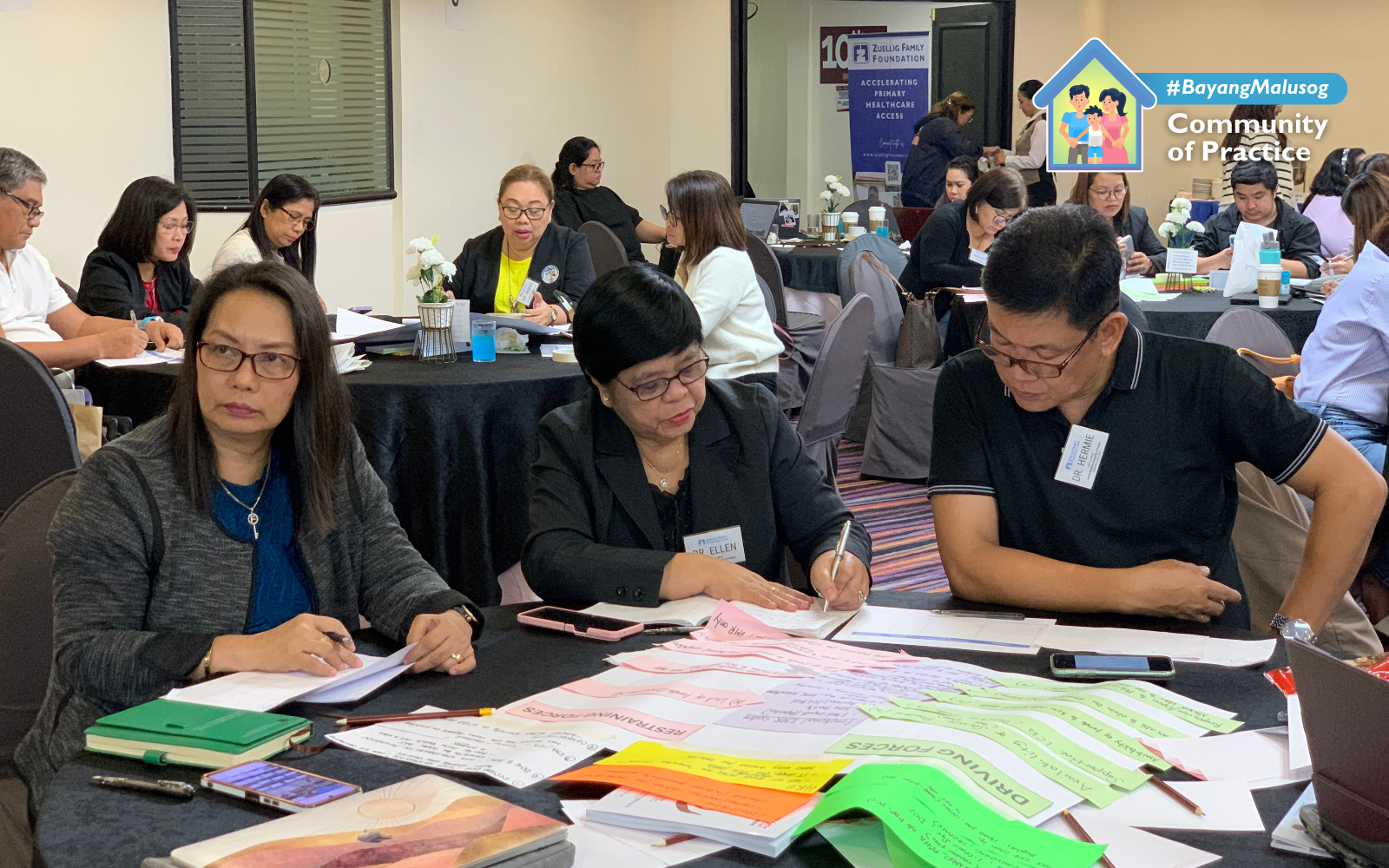
3. The role of leadership and governance. Participants stressed that local chief executives (LCEs) and health leaders must take an active role in prioritizing iHIS. Leadership can make a significant difference in securing funding for IT infrastructure, ensuring proper implementation of systems, and aligning local health initiatives with national policies. Provinces with strong leadership and governance support showed better progress in using iHIS, as leaders invested in technology and human resources to support UHC efforts.
4. Tackling the procurement challenge. Slow and cumbersome procurement processes emerged as a major obstacle in improving HIS. Many regions face delays in acquiring essential equipment like computers, servers, and internet connectivity tools. The lengthy process for purchasing IT infrastructure often results in outdated or insufficient equipment, which hinders the smooth implementation of eMR systems. Participants suggested streamlining procurement processes and providing faster access to funding for IT-related needs as immediate solutions to these bottlenecks.
5. Unified data systems: a work in progress. While DOH is working towards creating an iHIS, progress has been slow due to delays caused by the pandemic. Ms. Cherrie Esteban, DOH-Knowledge Management Information and Technology Services (KMITS) Division Chief, outlined efforts to consolidate various disease registries and create a single system that integrates data across different healthcare levels. However, this remains a work in progress, and many local health units continue to use separate platforms, complicating data management and decision-making.
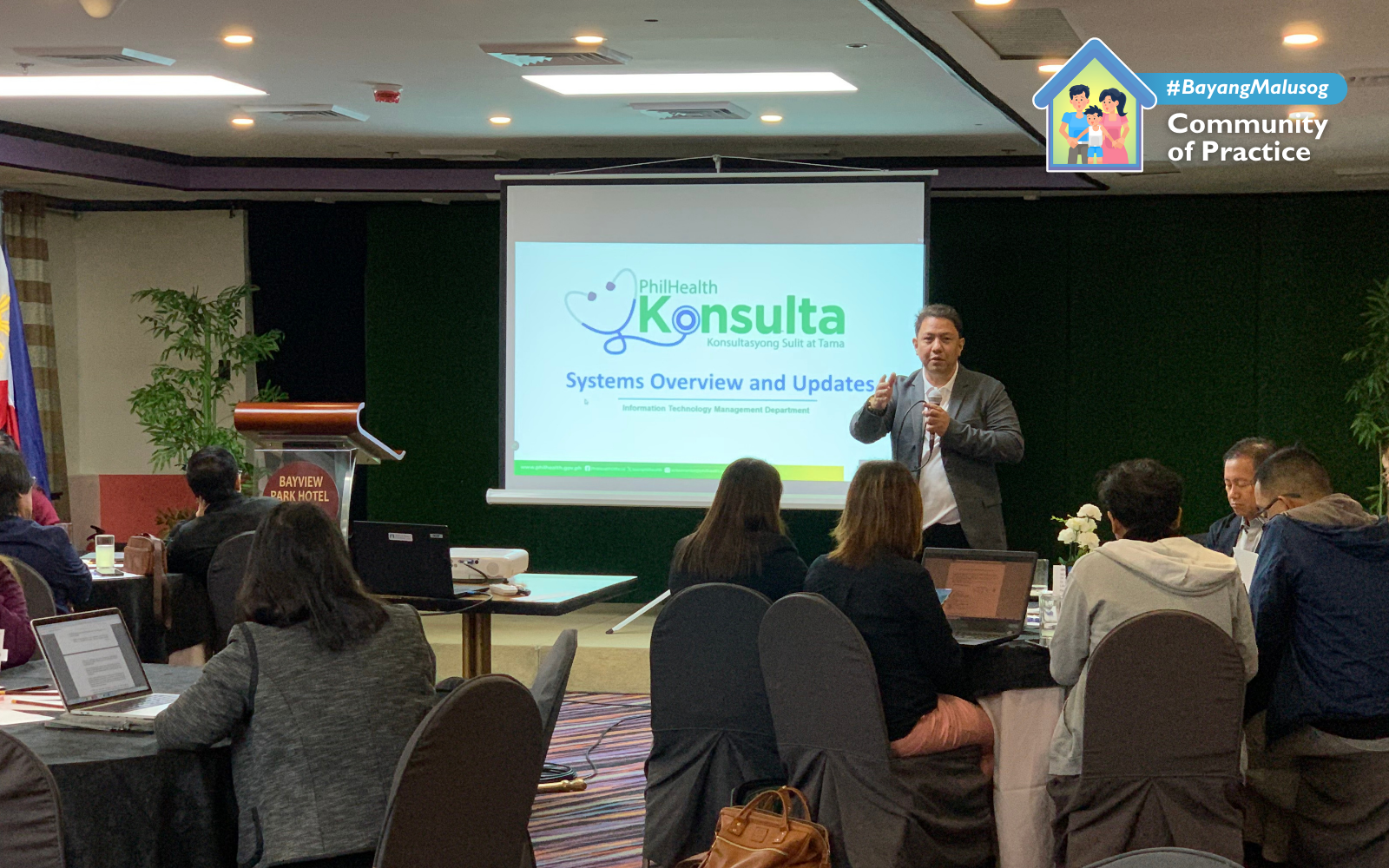
6. Bridging health financing and data needs. One insight shared was the need to align health data with financial systems like PhilHealth. Many participants raised concerns about how health services are financed, noting that inconsistent data reporting affects the ability of local government units (LGUs) to claim PhilHealth reimbursements and secure funding for health programs. Aligning health data systems with financing mechanisms can help improve healthcare delivery by ensuring that funds are allocated where they are most needed.
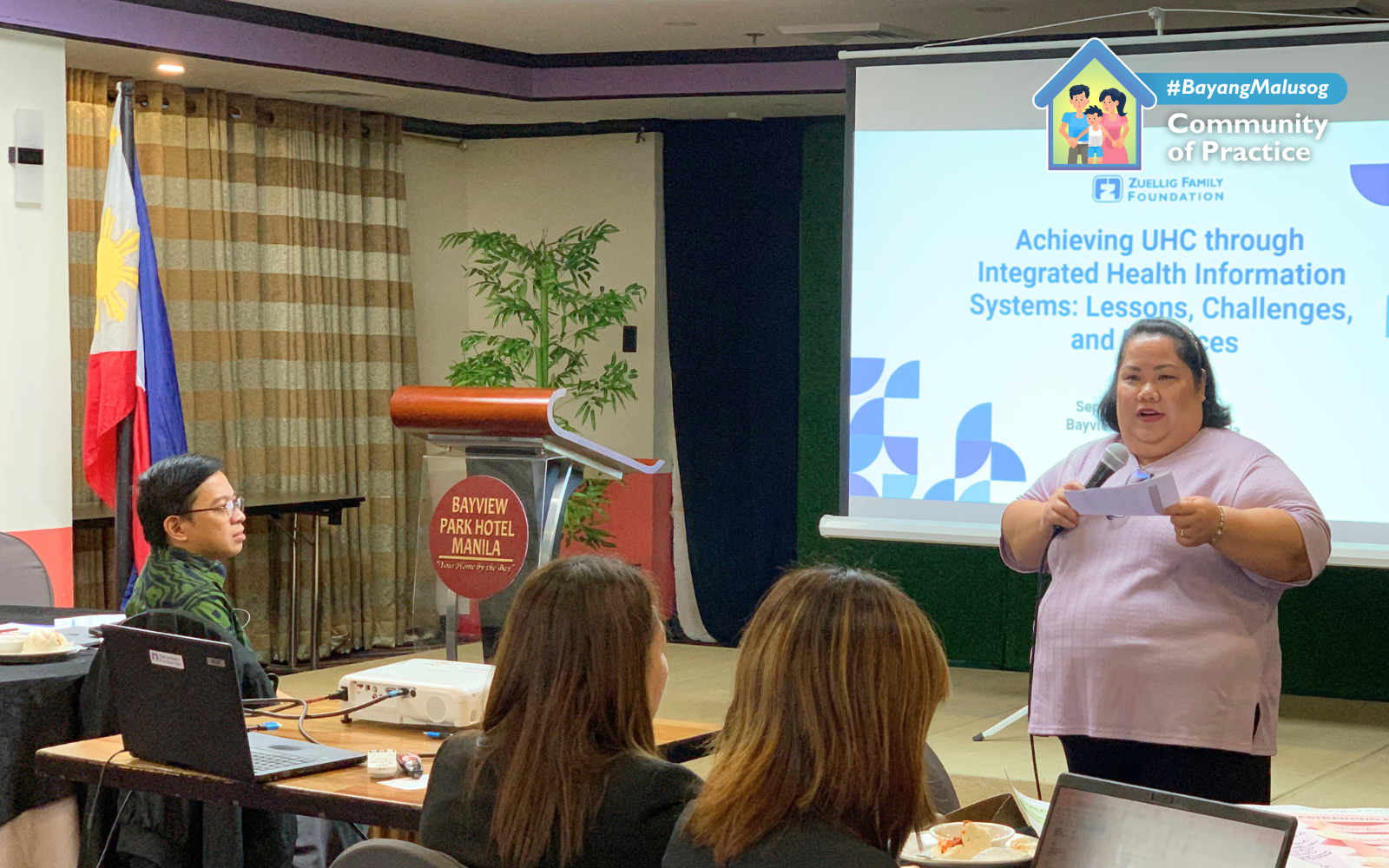
The event concluded with an action planning session where the participants outlined specific steps to improve their respective HIS. Common priorities included upgrading IT infrastructure, providing training for health workers, and securing support from both local governments and national agencies like DOH and PhilHealth. Participants also stressed the need for continued collaboration across regions, sharing best practices and lessons learned as they work towards achieving UHC. While challenges remain, the collective effort to improve HIS will be key to accelerating the realization of UHC for all Filipinos.
Cagayan Valley Governors Join Leadership Development Program for Universal Health Care
On September 17, 2024, Provincial Governors from the Cagayan Valley region (Region 2) came together at Citadines Bay Manila, Pasay City, for the Bayang Malusog Provincial Leadership Development Program’s (PLDP) first Executive Session for Governors. The event, hosted by the Department of Health (DOH)-Cagayan Valley, as part of Zuellig Family Foundation (ZFF)’s Bayang Malusog Program, focused on aligning health visions towards the provinces’ accelerated implementation of the Universal Health Care Law.
Governors Hon. Marilou Cayco of Batanes, Hon. Manuel Mamba of Cagayan, Hon. Jose Gambito of Nueva Vizcaya, their respective health teams, and representatives of Isabela participated in the 1-day activity.
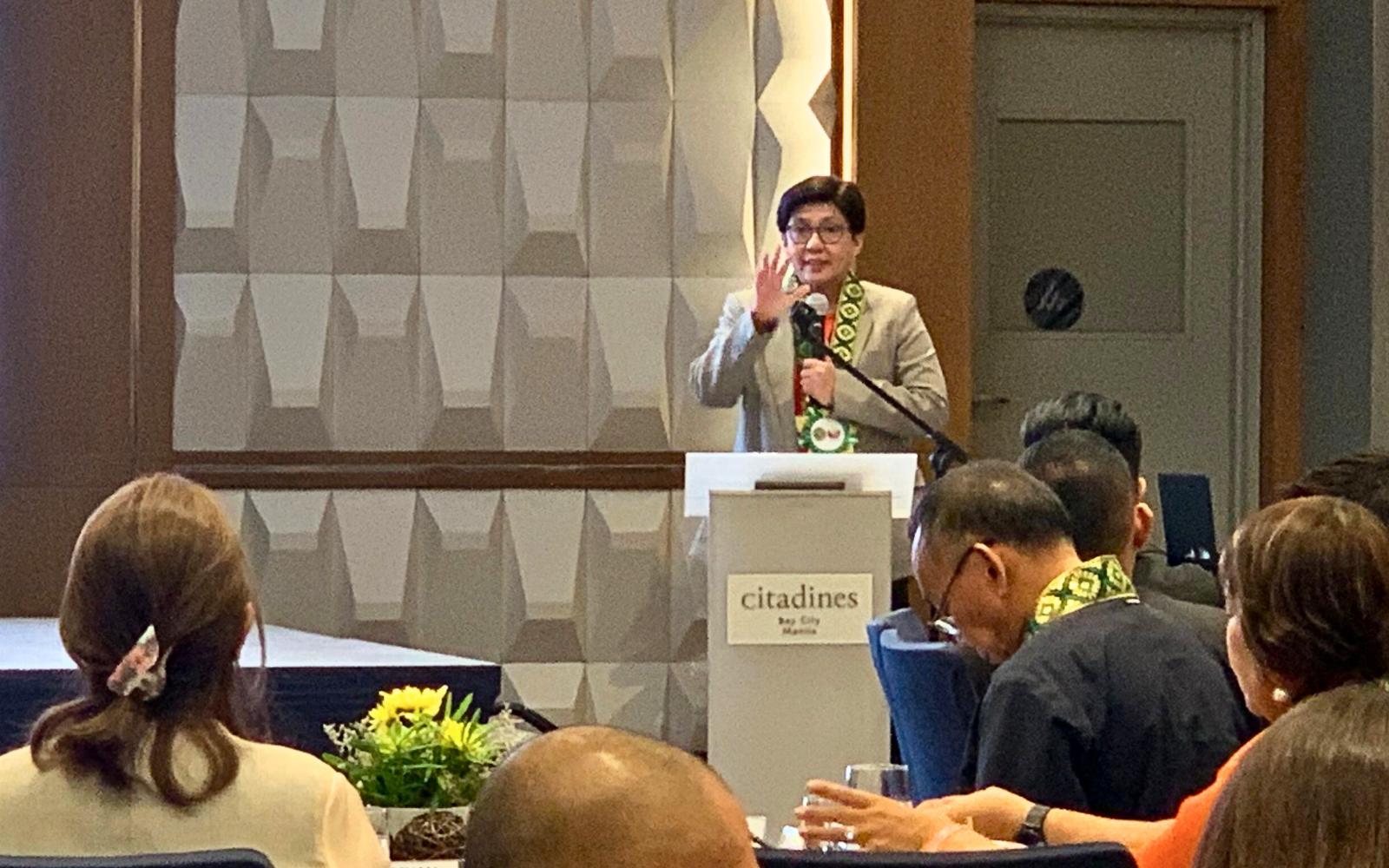
The day began with a message from Dr. Amelita Pangilinan, DOH-Cagayan Valley Regional Director. She emphasized the importance of leadership in health governance. Dr. Maria Rosario Singh-Vergeire, DOH Undersecretary, followed with a call to action. She discussed the challenges in UHC implementation, particularly in regions with difficult access to healthcare due to geography and lack of resources. “We must aspire for a future where every family can trust that healthcare is not a privilege, but a right,” she said, urging leaders to take a holistic approach in solving health issues.
Bayang Malusog PLDP: Setting the Stage. Dr. Jenilyn Ann V. Dabu, Program manager at ZFF, presented an overview of the Bayang Malusog PLDP. She explained that the program, running for one year, aims to help provincial leaders evaluate their health systems and accelerate UHC implementation. The training includes mentoring, technical assistance, and system redesign efforts, with a target of 100% organizational health system maturity and 50% functional maturity by the end of the program. “We hope these reforms will lead to better health outcomes,” Dr. Dabu said, encouraging the governors to look at health services all the way down to the barangay level.
Cagayan Valley’s UHC Journey. Mr. Janriel A. Lavadia, UHC Coordinator for Cagayan Valley, shared the region’s progress toward achieving UHC. He reported that all provinces in Region 2 are on the official list of UHC integration sites, ensuring no province is left behind. “Malayo pa pero malayo na ang narating ng Cagayan Valley,” he remarked. Despite challenges, the region has made headway in establishing management support units and expanding provincial health boards. “It’s important to celebrate small wins together,” Lavadia added.
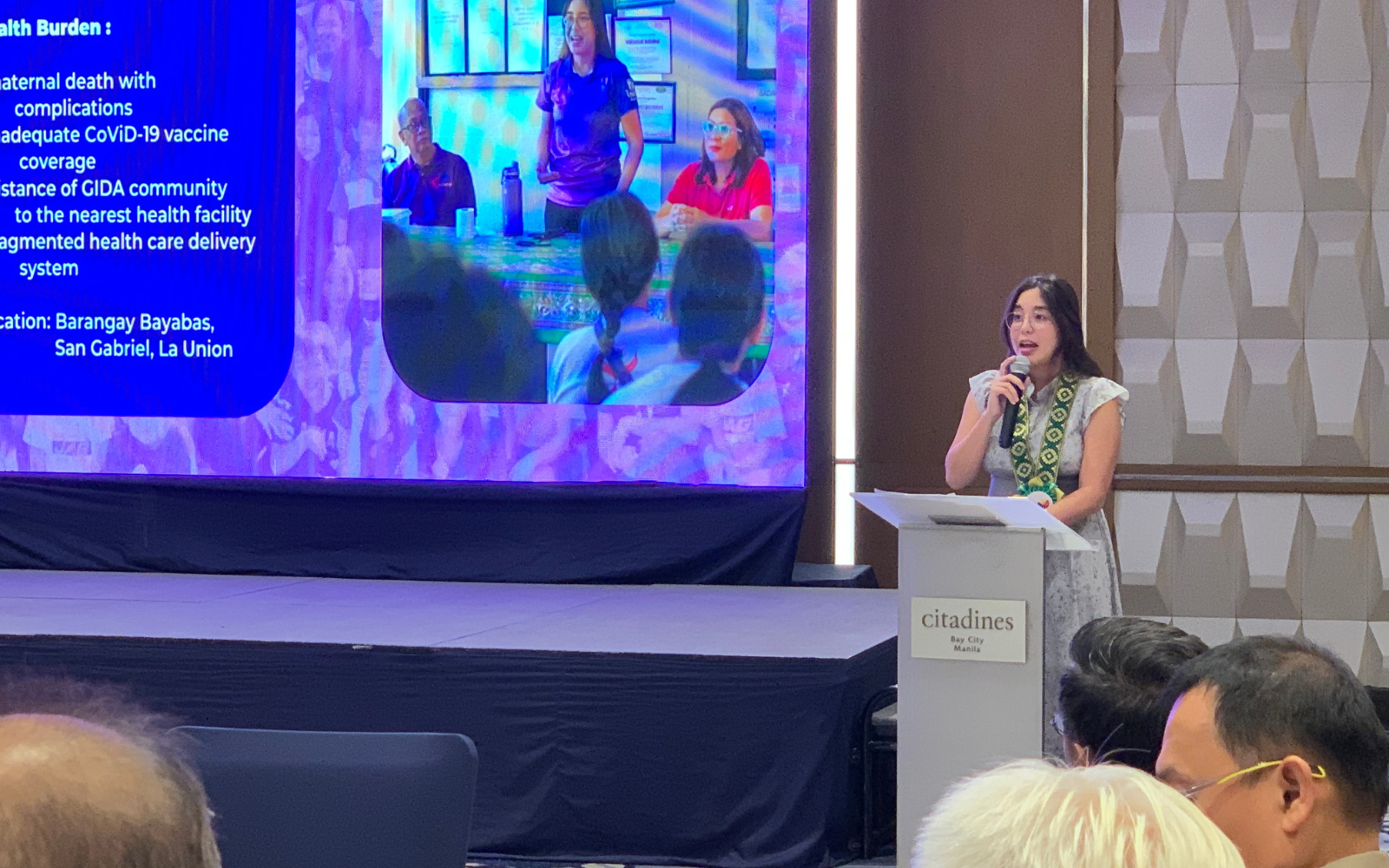
Lessons from La Union. Governor Raphaelle Veronica Ortega-David of La Union shared her Deep Dive, a guided community immersion, as part of ZFF’s Bayang Malusog PLDP. They visited Barangay Bayabas of the Municipality of San Gabriel in La Union, and encountered the tragic story of a mother who died from giving birth in San Fernando City, an hour away from her town. “Reflecting on my journey, it was a harsh revelation that a barangay was deprived of access to adequate healthcare,” Governor Ortega-David said, expressing her deep sense of responsibility to create a better, more responsive health system for her province.
PhilHealth and UHC Financing. PhilHealth representatives, Walter Bacareza and Clementine Bautista, provided updates on UHC financing, emphasizing that under UHC, all Filipinos are covered. PhilHealth is working on contracting Health Care Provider Networks (HCPN) to deliver integrated services, ensuring that even remote areas have access to healthcare. They also explained the benefits of the HCPN, which includes enhanced outpatient services and easier access to medications, backed by a sustainable financing system through the Special Health Fund (SHF).
Pangasinan’s Commitment to UHC. Dr. Anna Maria Teresa De Guzman, Provincial Health Officer of Pangasinan, shared her province’s efforts in implementing UHC. With over 1,300 barangays, Pangasinan has enacted ordinances to institutionalize province-wide health systems and formalize their SHF. She shared the development of their UHC SHF Management Procedure Manual, which details the protocols in accessing the SHF. She also emphasized the importance of monitoring implementation to meet UHC goals, ensuring that even the most remote communities benefit from the health reforms.
—
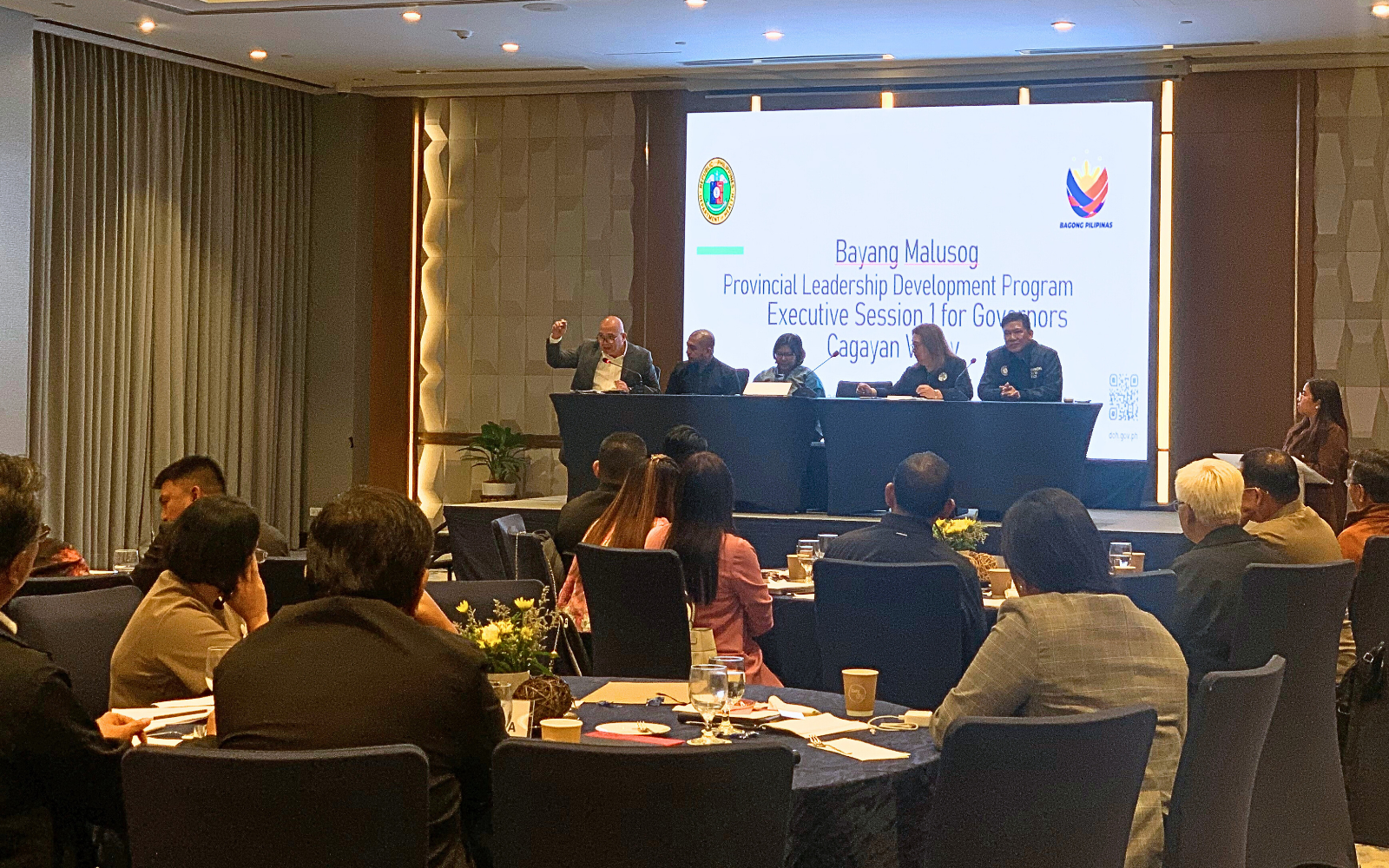
The session ended with a look ahead to the next module of the Bayang Malusog PLDP. By then, the governors will have implemented their quick wins and begun taking steps toward improving health systems in their provinces, particularly for the poor and underserved. This event marked the first step in the journey toward making health care in Cagayan Valley more equitable, accessible, and truly universal.
NutriLEAP: A Pathway to Healthier Provinces
The Nutrition Leadership and Equity Acceleration Program (NutriLEAP) is aimed at improving nutrition in provinces across the Philippines. Designed by the Zuellig Family Foundation (ZFF) and supported by the League of Provinces of the Philippines (LPP), this program focuses on enhancing leadership and governance in the fight against malnutrition.
The program helps governors and their teams assess the current state of their local nutrition systems and implement strategic actions. NutriLEAP equips local leaders to actively engage with stakeholders and work towards real, lasting change. The focus is on identifying gaps in nutrition systems, setting achievable goals, and ensuring that these goals are met with ongoing commitment.
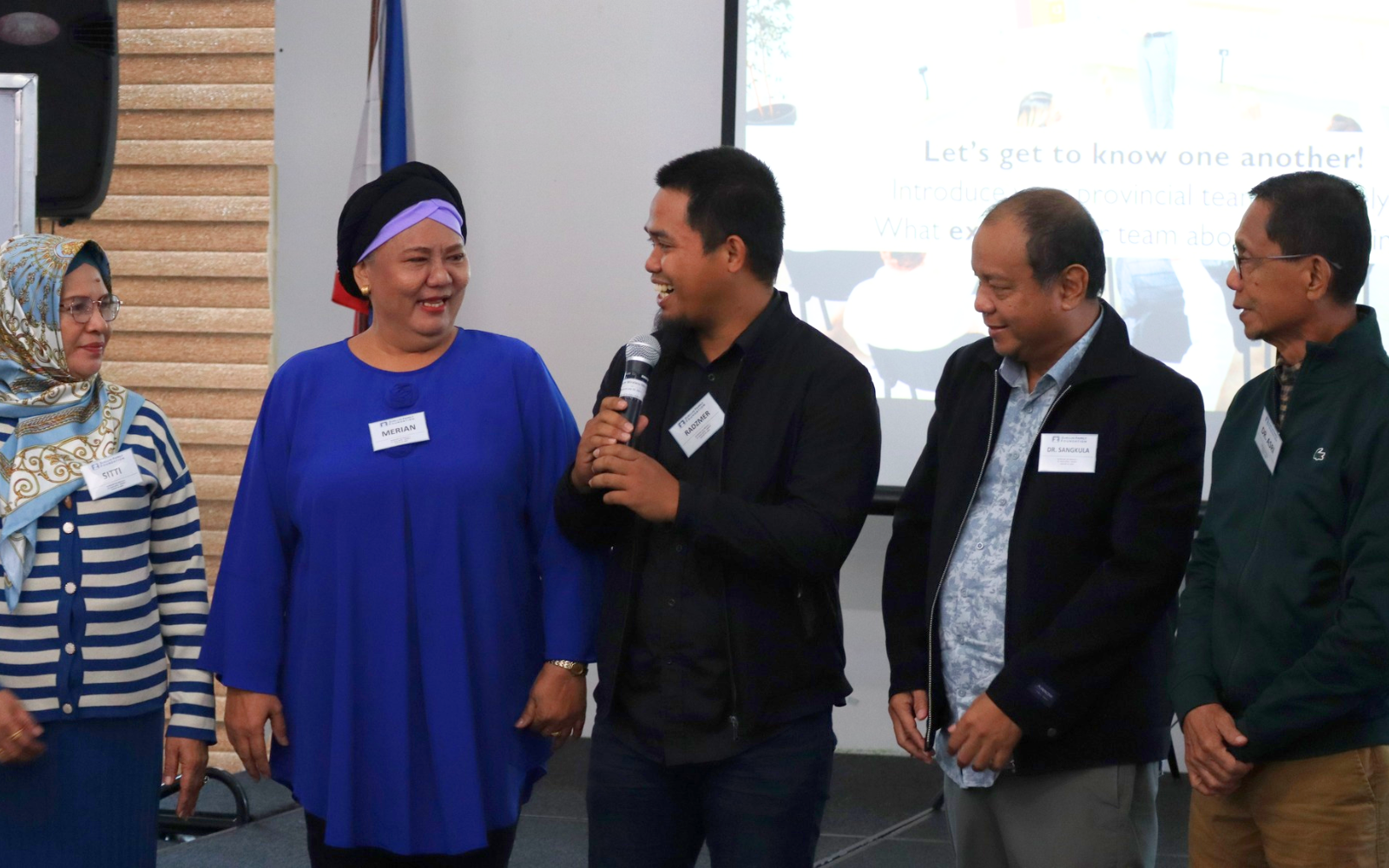
Why Focus on Leadership and Governance?
The idea behind NutriLEAP is simple: good leadership can drive progress. Governors play a critical role in shaping provincial nutrition programs. By understanding local data, identifying key issues, and working with a team of experts, they can implement policies that directly target malnutrition at the local level. The program emphasizes collaboration between the provincial core team, local nutrition committees, and the communities they serve. This is where leadership and governance are most crucial.
Hands-On Learning: Module 1 Overview
The first module of NutriLEAP’s Executive Session for Governors (ESG), held last August 23, 2024, zeroed in on building leadership and governance skills. Governors learn how to analyze local nutrition data, apply best practices, and create action plans that can be effectively implemented in their provinces.
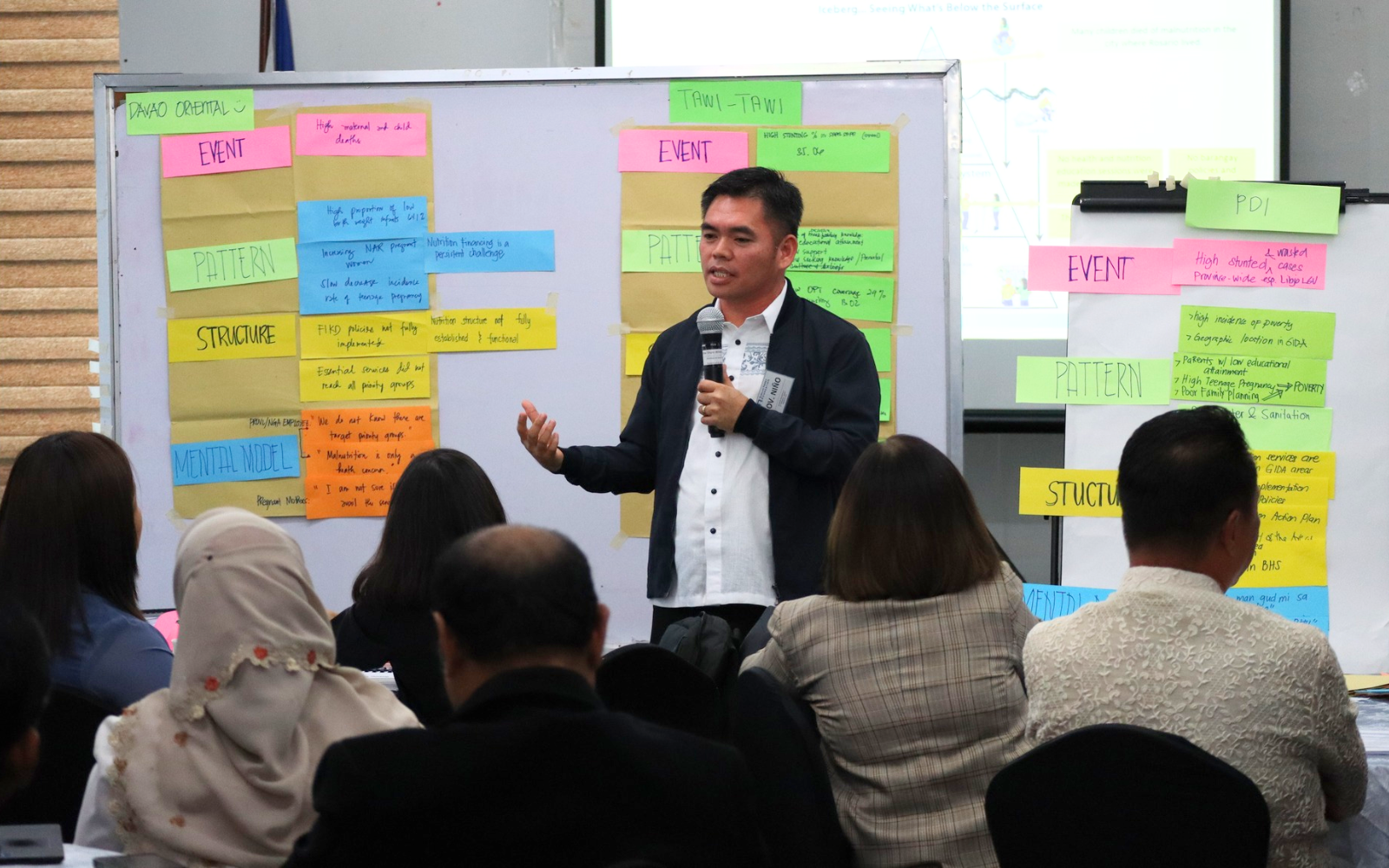
Davao Oriental Governor Niño Sotero Uy Jr., Dinagat Islands Governor Nilo Demerey Jr., their respective teams, and representatives of Tawi-Tawi took part in the one-day training session on leadership and governance. During the session, they analyzed local nutrition data, identified priority issues, and created action plans to improve nutrition systems in their provinces. The ultimate goal is to foster a culture of continuous learning, teamwork, and accountability—key ingredients for lasting change.
From Data to Action
One of the highlights of NutriLEAP is its data-driven approach. Governors are trained to use data not just for assessment, but for action. They are encouraged to set high targets—aiming for at least 90% of key nutrition services to be delivered. Regular monitoring and progress updates help keep everyone on track, while improving the Local Nutrition Action Plan ensures that targets are aligned with provincial goals.
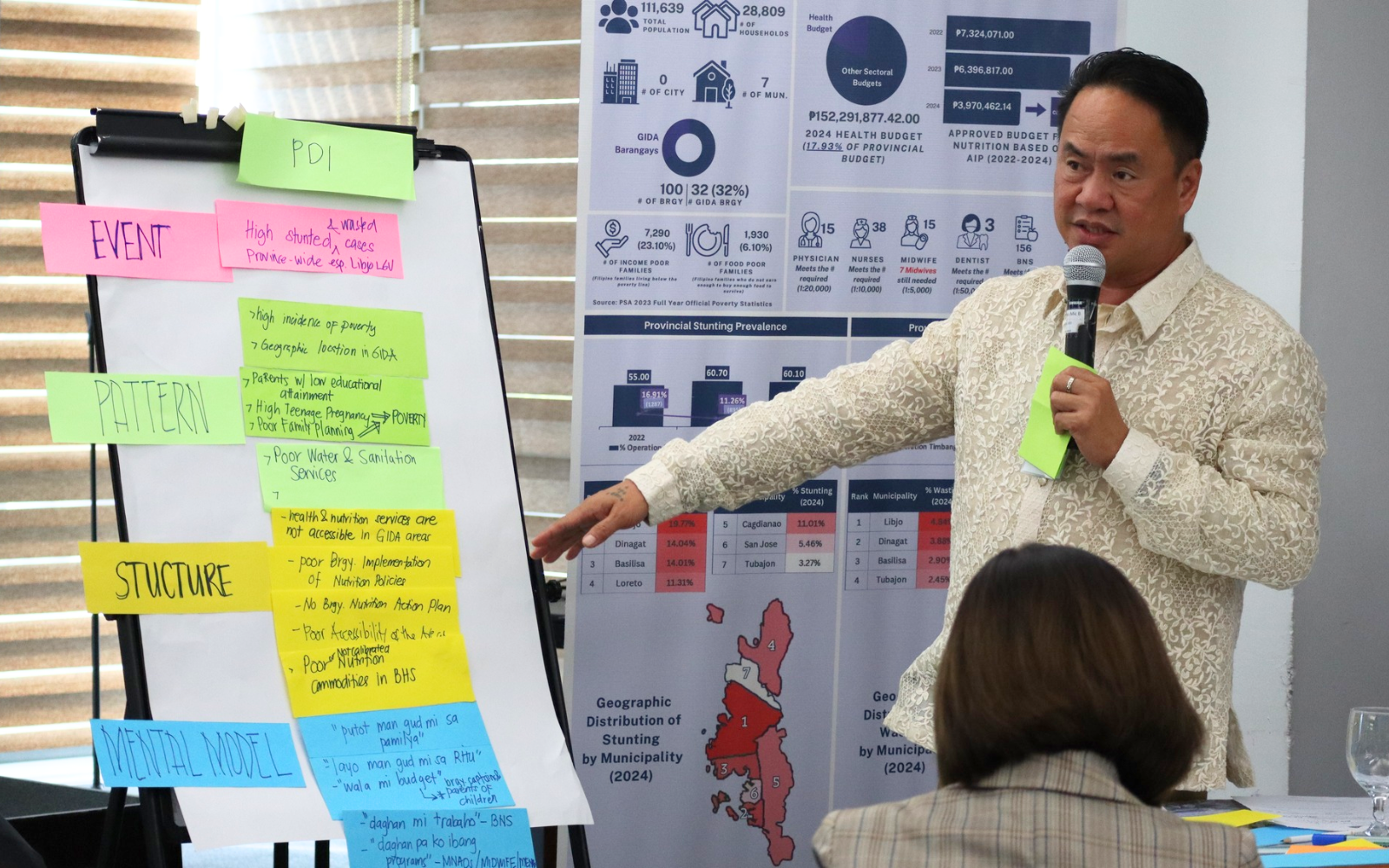
Governors also take on the role of advocates. By communicating their province’s nutrition goals to mayors and other local officials, they pave the way for best practices to be adopted down to the barangay level.
Moving Forward Together
The program is already showing promise. Several provinces have participated, with Davao Oriental leading the charge. Other provinces like Mountain Province and North Cotabato are also exploring ways to get involved. Each of these provinces faces unique challenges, from stunting in children to broader health and equity concerns, but the shared goal remains clear: improving nutrition for all.
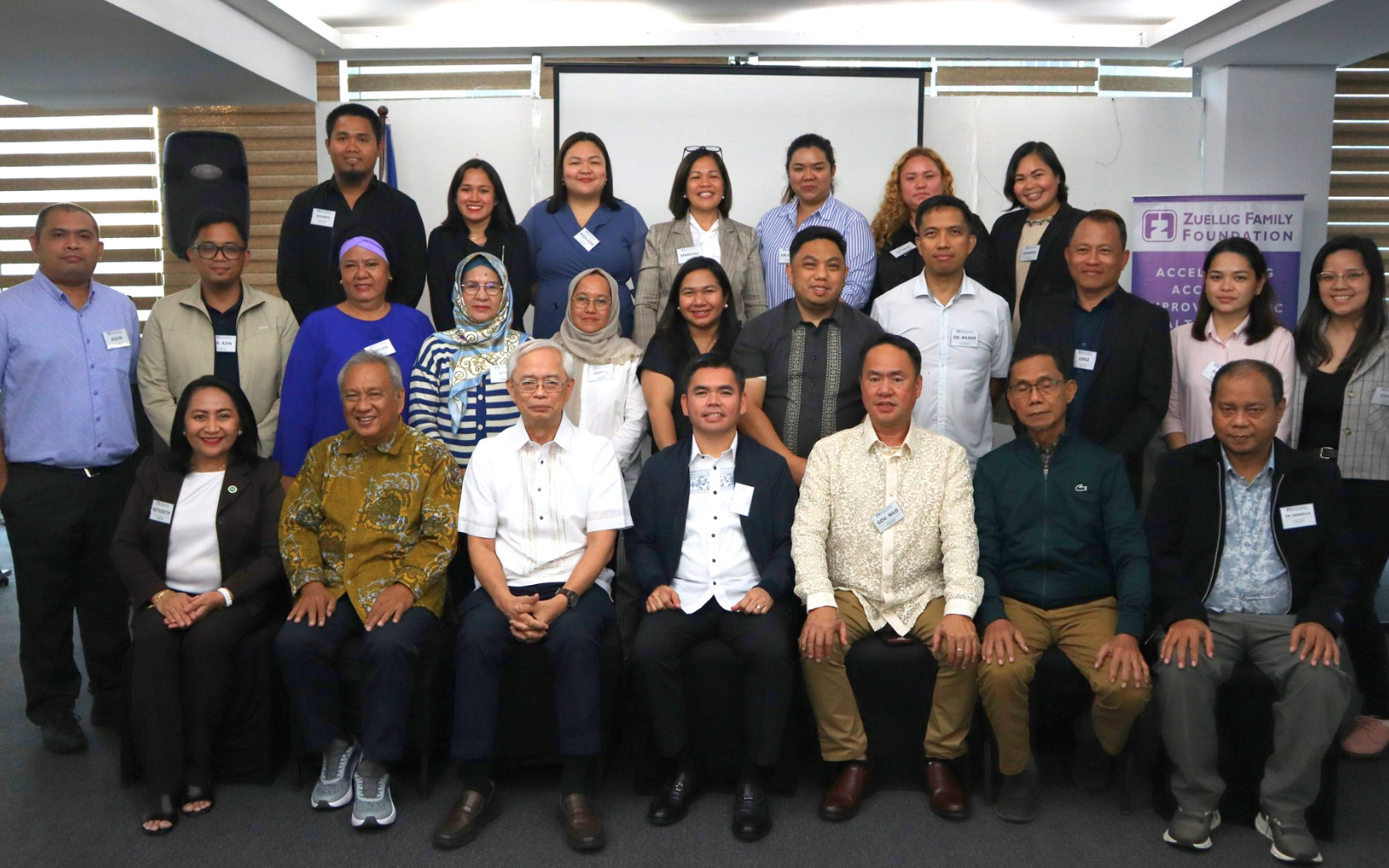
In the end, NutriLEAP is about more than just reducing malnutrition—it’s about empowering local leaders to take ownership of the issue and create sustainable, positive change for their communities. With the right leadership and governance in place, the path to healthier provinces is within reach.
Health Equity in Focus: UP-CPH and ZFF Lead Webinar on Universal Health Care
On August 15, 2024, the University of the Philippines-College of Public Health (UP-CPH) and the Zuellig Family Foundation (ZFF) hosted the webinar titled “Health Equity in Focus: Lessons from Early Implementation of UHC in Selected Regions.” The event, streamed via Zoom and Facebook Live, attracted over 1,500 participants eager to discuss the progress and challenges of rolling out the Universal Health Care (UHC) Law.
The webinar opened with a warm welcome from Dr. Fernando Garcia, UP-CPH Dean, who emphasized the importance of collaboration among different stakeholders to improve health outcomes and achieve health equity. Dr. Leizel Lagrada, UP-CPH Program for Health Equity Coordinator, noted that true UHC cannot be achieved without health equity, stressing the need for a strong primary health care system as the foundation.
The session featured key presentations from Dr. Catherine Chung, ZFF Local Health Systems Portfolio Director, and Dr. Anthony Faraon, ZFF Deputy Executive Director, who introduced the Bayang Malusog Program. This program focuses on training regional, provincial, and municipal leaders to speed up UHC implementation. They discussed data from the program’s target areas and shared the challenges faced, particularly in the rollout of PhilHealth’s Konsulta program. Slow implementation and technical issues with PhilHealth’s information systems, and difficulties in meeting licensing and accreditation requirements of primary care facilities were identified as significant barriers.

A panel discussion followed, where experts shared their experiences and strategies in implementing UHC at the local level. They discussed the need for better coordination, especially in areas with poor infrastructure and internet connectivity, which hampers the Konsulta registration and service delivery:
Regional Strategies for UHC Implementation: Dr. Paula Paz Sydiongco, Department of Health-Center for Health Development (DOH-CHD) Regional Director for Ilocos Region provided examples where targeted interventions and localized strategies have been employed to address specific health challenges. Dr. Sydiongco emphasized the need for regional adaptability, noting that what works in one area may not be as effective in another, and thus, tailored strategies are essential for achieving the goals of UHC.
Leadership and Governance in Health Equity: Dr. Anna De Guzman, Provincial Health Officers Association President, shared her experiences in leading health initiatives at the provincial level and how strong governance structures can drive meaningful change in health outcomes. Dr. De Guzman underscored the importance of leadership that is both visionary and grounded in the realities of the communities it serves, ensuring that policies and programs are inclusive and equitable. She said, “It’s not [about] how big you are in the implementation of UHC, but it’s more on the commitment and your passion to really push for the vision and to achieve the goals of UHC.”
The Role of Performance Monitoring in Health Equity: Lindsley Jeremiah Villarante, DOH Performance Monitoring and Strategy Division Chief, discussed how consistent and accurate data collection is crucial for identifying disparities in healthcare delivery. He pointed out that without proper monitoring and strategic evaluation, efforts towards achieving health equity could fall short, as there would be no clear understanding of which areas need improvement or further support.
Quality Assurance as a Pillar of Universal Health Care: Dr. Francisco Z. Soria Jr., PhilHealth Quality Assurance Group Vice President, explained that ensuring quality in healthcare services is not just about meeting standards but also about creating a system that consistently delivers high-quality care across all levels of the healthcare system. He stressed that quality assurance mechanisms must be in place to maintain trust in UHC and ensure that all Filipinos receive the care they deserve.
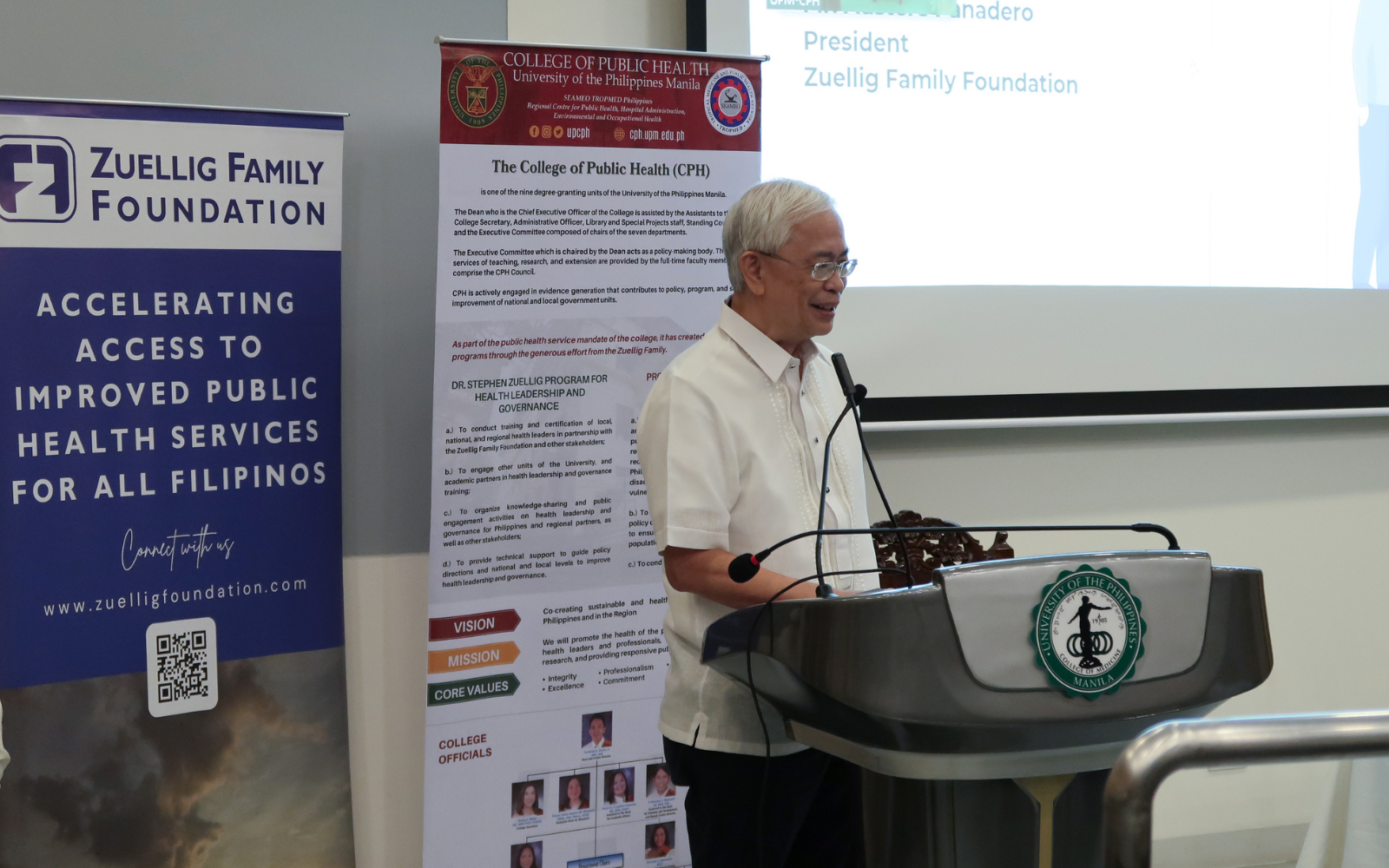
In closing, ZFF President Austere Panadero acknowledged the ongoing challenges in achieving UHC, especially in reaching the most vulnerable populations. He urged for faster and more innovative strategies to ensure that UHC benefits are felt by all Filipinos. “Ramdam ba ng bawat Pilipino ang UHC?” Panadero asked, pushing for more effort in making health services accessible to everyone.

Strengthening Health Leadership: Cordillera’s Path to Universal Health Care
On August 9, 2024, the Provincial Leadership Development Program (PLDP) for the Cordillera Administrative Region (CAR) concluded with a colloquium at The Heritage Hotel Manila led by the University of the Philippines-College of Public Health (UP-CPH), academic partner of the Department of Health-Center for Health Development (DOH-CHD) in CAR, and the Zuellig Family Foundation (ZFF).

The event, themed “Strengthened Leadership Towards Redesigning Health Systems for the Acceleration of UHC in Cordillera,” gathered the five provinces of CAR (Apayao, Benguet, Kalinga, Ifugao, and Mountain Province) through their respective governors to share lessons and strategies on how they structured and organized their health service delivery.
The colloquium featured reflections from the governors of five provinces:

Collective Action for Health: Governor Elias C. Bulut, Jr. of Apayao believes that a whole-of-society and whole-of-government approach is essential to tackle the social determinants of health. He shared how Apayao has mobilized various sectors—from local government units to community organizations—in a concerted effort to improve health outcomes. He pointed out that only by working together can communities address issues such as poverty, lack of education, and inadequate access to healthcare, which are the root causes of many health problems.
Comprehensive Approaches to Health: Governor Melchor D. Diclas of Benguet spoke on how socio-economic status, education, and access to resources significantly influence health outcomes. He shared that Benguet’s health programs now consider these factors, ensuring that interventions are more tailored to the specific needs of the community. By recognizing and addressing these underlying issues, Benguet aims to create a more equitable health system that reaches even the most vulnerable populations.
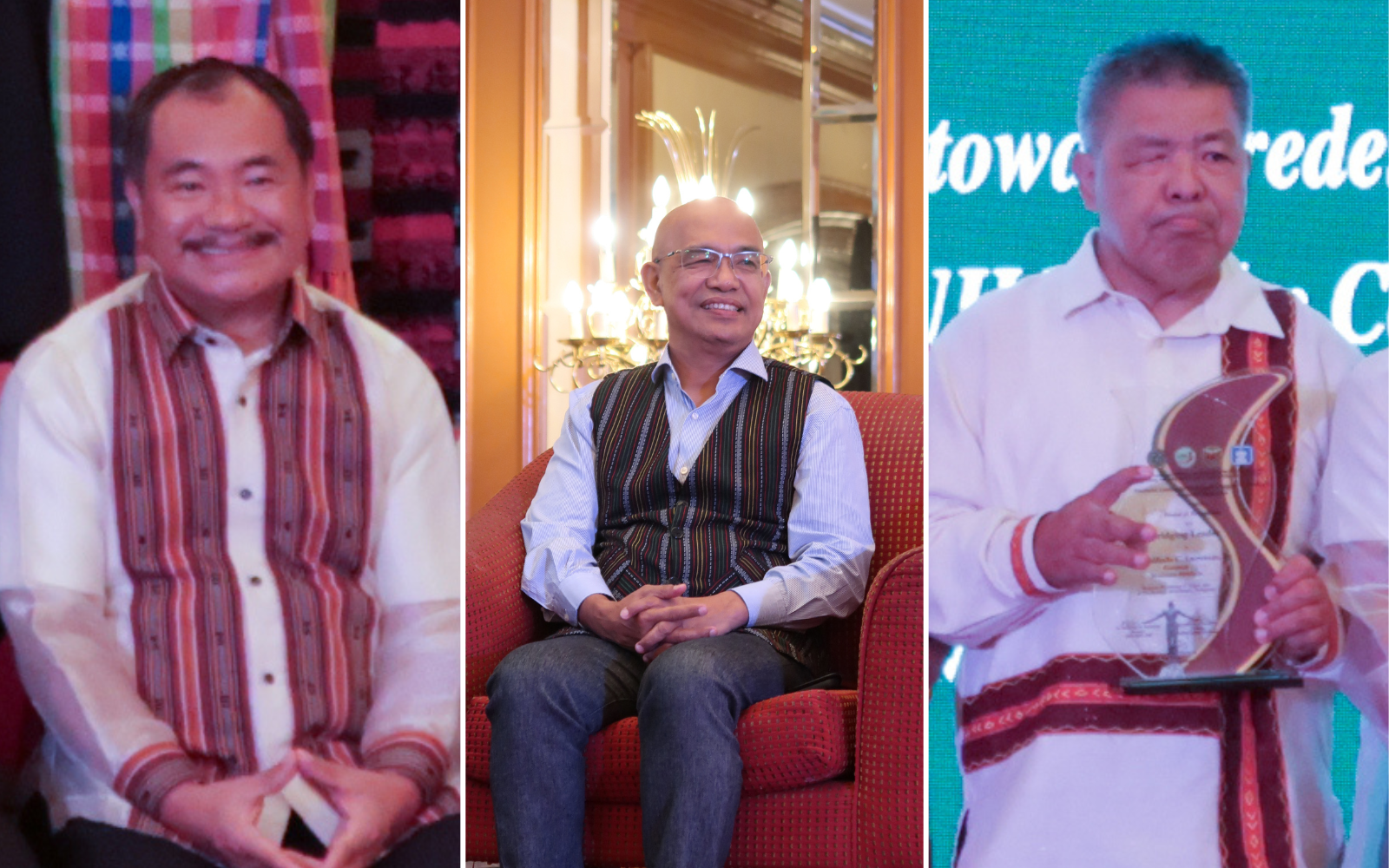
Leadership and Critical Thinking: Governor Jerry U. Dalipog of Ifugao shared how Ifugao’s leadership team adopted a proactive stance, anticipating potential obstacles and crafting strategies to overcome them. He said that such foresight and adaptability have been crucial in redesigning Ifugao’s health services, particularly in the face of emerging public health threats.
Strategic Partnerships for UHC: Governor James S. Edduba of Kalinga called on the DOH to invest more in workforce development, infrastructure, and digital health. He also urged the DOH to strengthen support for primary care and service delivery networks and to provide technical assistance on the operationalization of the Special Health Fund (SHF). For ZFF, he recommended enhancing partnerships with community-based organizations to empower local leaders and improve service delivery. Additionally, he suggested that UP-CPH integrate UHC into its curriculum and offer short courses to build capacity in health leadership.
Local Empowerment and Health Equity: Governor Bonifacio C. Lacwasan, Jr. of Mountain Province reflected on the ‘Barangay Muna’ initiative, which focuses on empowering local communities to take charge of their health. He discussed how this grassroots approach has been pivotal in addressing issues like malnutrition and non-communicable diseases, which often stem from deep-rooted socio-economic challenges. Governor Lacwasan emphasized the importance of working closely with barangays to ensure that health interventions are not only effective but also sustainable.
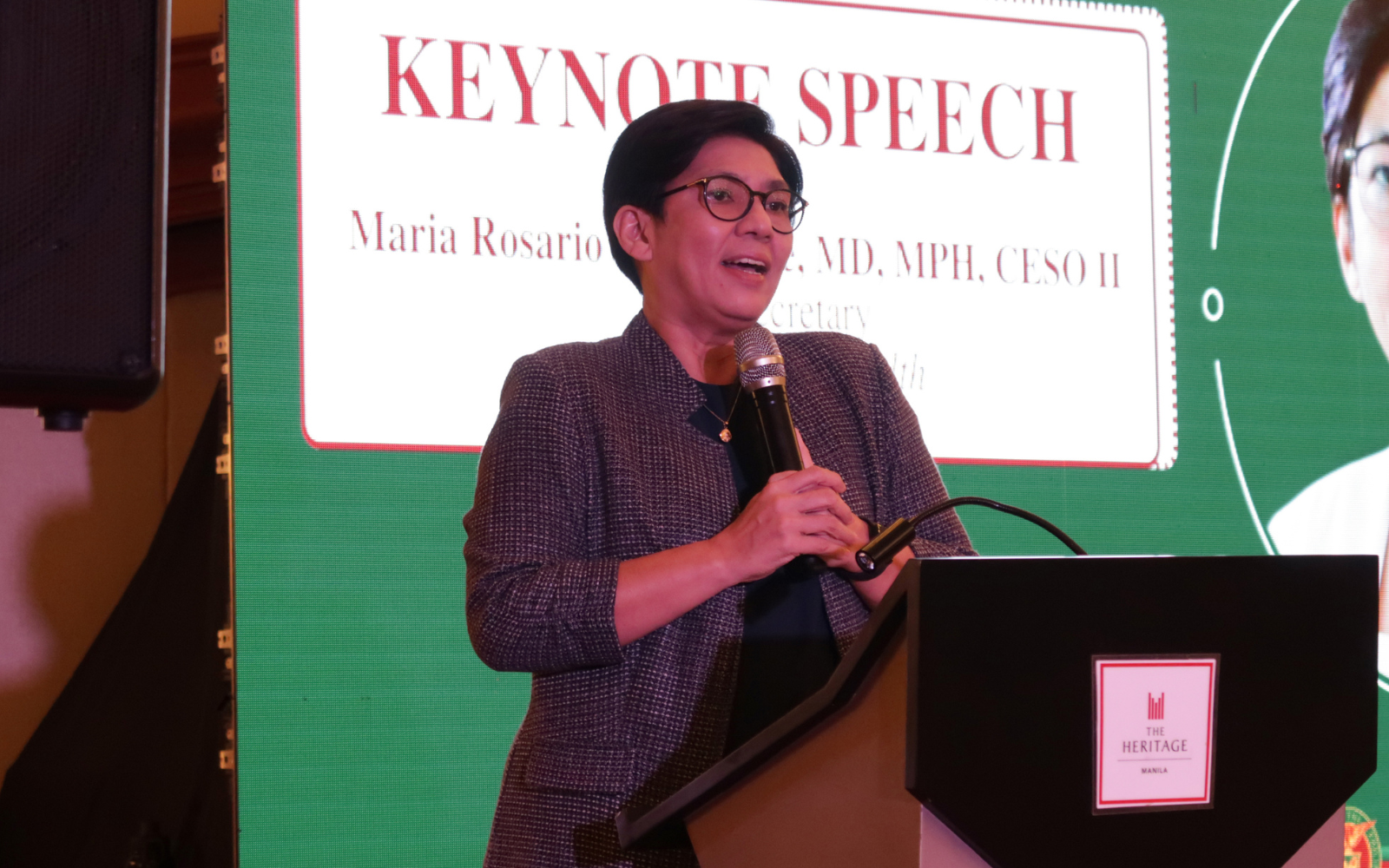
The event featured a keynote address from Dr. Maria Rosario Vergeire, DOH Undersecretary, who highlighted the progress made and the ongoing challenges in UHC implementation. Dr. Vergeire urged leaders to strengthen connections between municipalities and provinces to create more coordinated health care networks. Panel discussions included insights from former Regional Directors Dr. Rio Magpantay, Dr. Amelita Pangilinan, and Dr. Myrna Cabotaje, providing valuable perspectives on health system improvements.
PLDP, a two-year initiative led by DOH and UP-CPH and supported by ZFF, has empowered provincial leaders with the skills needed to transform health systems. Through a mix of classroom learning and practical experience, participants have developed strategies to accelerate UHC and create sustainable health solutions for their communities. This closing colloquium marks a new chapter in CAR’s health leadership, with strengthened governance and innovative approaches paving the way for better health outcomes across the region.

Catbalogan Youth Leaders Tackle Adolescent Pregnancy
From August 7-9, 2024, youth leaders in Catbalogan City, Samar, came together for a three-day training under the Barangay Expanded Youth Leadership and Governance Program (BEYLGP). This event, led by the Zuellig Family Foundation (ZFF), under the Joint Programme on Accelerating the Reduction of Adolescent Pregnancy in Southern Leyte and Samar (JPARAP), focused on finding ways to reduce the high rates of adolescent pregnancies in Catbalogan City.
Sangguniang Kabataan (SK) Leaders Share Their Challenges and Plans
Jenine Ortiz, an SK Councilor from Barangay Payao, spoke about the struggles her community faces in getting young people interested in the issue. Many of them find it boring or do not see how it benefits them. Parents are not pushing their kids to join the discussions either, thinking it is only relevant for married people. Some parents are uncomfortable talking about these topics, especially when it involves sex. Ortiz also mentioned that barangay officials do not show much interest, and it is unclear if teachers are addressing the problem. Feeling isolated, she wondered if they were approaching the issue in the right way.
Paul Lawrence Tizon, an SK Member from Barangay Canlapwas, talked about the importance of collaboration among different groups in the community to address adolescent pregnancies. Canlapwas currently has the highest number of adolescent pregnancy cases in Catbalogan, according to the City Health Office. Paul stressed that only by working together can they bring these numbers down.
Charles Andrei Bañar, the SK Chairperson of Barangay San Andres, presented a plan that focuses on changing behaviors to reduce adolescent pregnancies. He emphasized that the success of this plan depends on the involvement of everyone in the community.
Other Community Leaders Speak Out
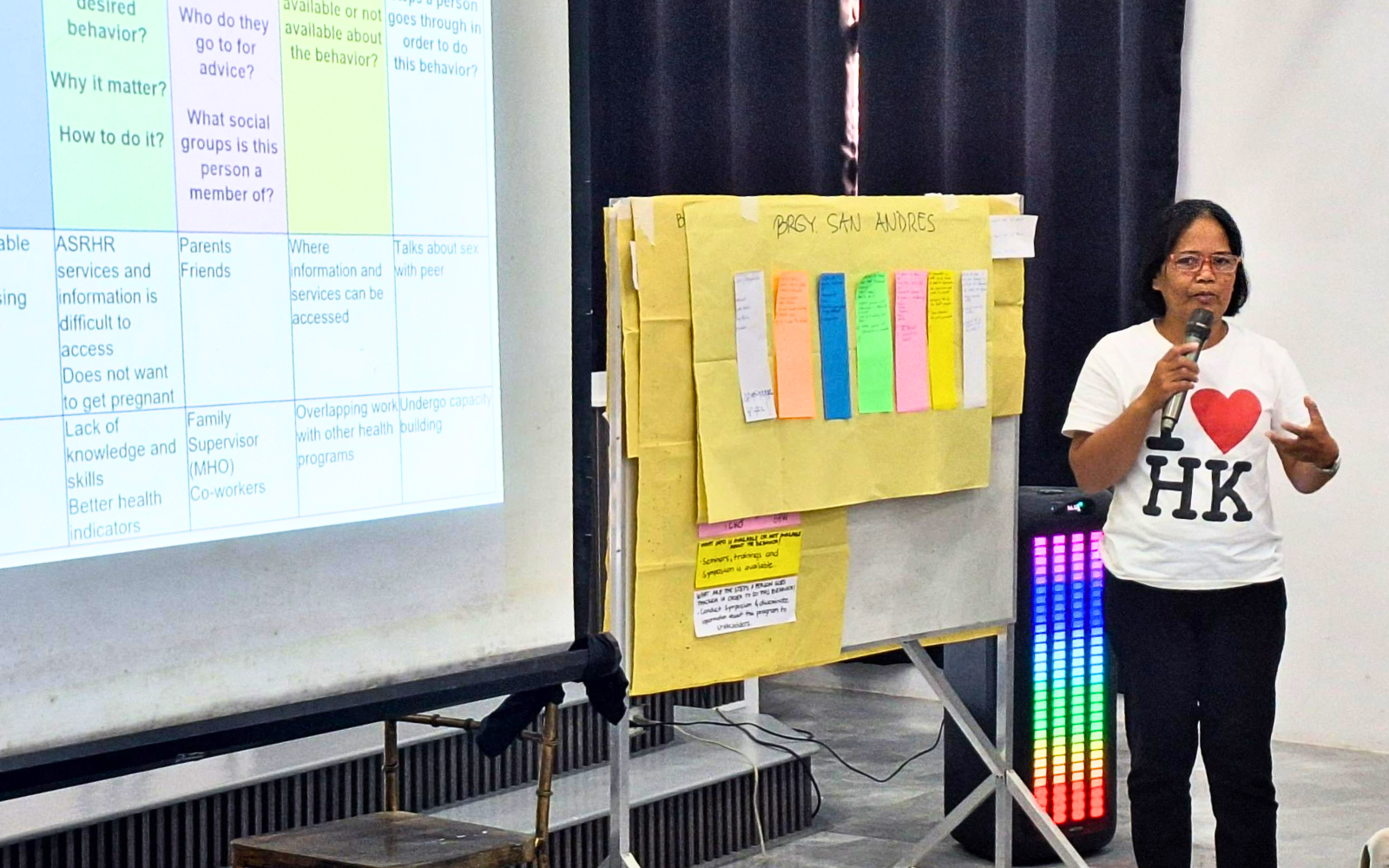
Marissa Rodriguez, a Parent Leader from San Andres, emphasized the need for understanding and empathy in leadership. She pointed out that leaders need to connect with the community to make a real difference. “To truly understand the challenges faced by our adolescents, genuine leaders must step into their shoes,” Marissa said.
Barangay Chairperson Eduardo Villanueva of Canlapwas acknowledged the seriousness of the problem in his area. He called on everyone in the barangay to unite and help address the issue. Eduardo also committed to enforcing stricter rules to prevent young people from getting into risky situations.
Rebeca Prudenciado, a youth leader from Barangay Mercedes (locally known as Burak), introduced their plan called ‘Usad Buraknon’, which aims to reduce adolescent pregnancies in their area. She said, “There can be no meaningful growth (usad) in our barangay if our fellow youth are getting pregnant at a very tender age.”
The BEYLGP training provided a platform for these leaders to share their experiences and develop strategies. With their dedication, the community is hopeful for positive changes ahead.

Mayor Jul-Adnan Hataman: Countering Malnutrition through Sumisip CARES
When Mayor Jul-Adnan P. Hataman won the election in Sumisip, Basilan in 2019, he knew little about nutrition. He admitted, “I used to think that nutrition was just about school feeding and a nutrition month celebration.”
Despite his initial lack of knowledge, Sumisip saw some improvements in nutrition in recent years. From 2020 to 2021, stunting rates dropped from 34.8% to 27.74%, wasting decreased from 9.57% to 3.57%, and low birth weight rates fell from 1.34% to 0.37%.
However, other indicators worsened. Operation Timbang (OPT) coverage dropped from 65.2% in 2020 to 59.5% in 2021, below the 90% national target. Indicators like Iron Folic Acid (IFA0, facility-based delivery (FBD), skilled birth attendants (SBA), and fully immunized child (FIC) were also below the national target.
In early 2019, Dr. Maria Rosalie De Guzman, a doctor to the barrio (DTTB) from Cavite, came to Sumisip. She continues to serve the municipality to this day—three years more than the required 2-year service for DTTB. Dr. De Guzman inspired local health workers to work and serve in their own communities. Mayor Hataman supported her by providing transportation and accommodation.
The municipality faced challenges filling health office positions due to safety concerns. Mayor Hataman appointed a Municipal Nutrition Action Officer (MNAO), and the Ministry of Health in Bangsamoro Autonomous Region in Muslim Mindanao (MOH-BARMM) assigned an additional nutrition officer to help.

Involving the youth in initiatives like Kamakanakan Sumisip (Youth of Sumisip) also helped. Despite these efforts, the nutrition situation remained challenging.
When the Zuellig Family Foundation (ZFF) invited Mayor Hataman to join the Municipal Nutrition Governance Program (MNGP) in January 2022, he immediately agreed. He knew he would learn a lot from the initiative, since his father was once a participant of a ZFF program. He knew, too, that he needed all the support that he could get to improve the municipality’s nutrition situation.
Challenging Situation
Sumisip, a municipality in Basilan with 567.60 square kilometers and a population of 47,345, faces significant health and nutrition challenges. Mayor Hataman and his team joined the MNGP in early 2022 to address these issues, focusing on improving health and nutrition for women and children.
Key challenges include an inactive nutrition committee, a lack of human resources, and harmful cultural beliefs and feeding practices. Some caregivers introduced solid food to infants too early, leading to health problems, while others failed to provide a varied diet.

In July 2022, as part of the MNGP, Mayor Hataman and his team participated in a Deep Dive activity in Barangay Mangal, the municipality’s most populated area, to understand these challenges firsthand. They visited a family struggling with poverty and poor nutrition practices. The mayor, disguised as a nurse, learned about the family’s struggles, including the lack of immunization and proper feeding for their child, baby Sirkan.
“Before I joined the MNGP, I didn’t have any knowledge about nutrition. But the opportunity has been given to us through this program so that we can calibrate ourselves and learn new nutrition theory to improve services,” he said. “[Through the Deep Dive,] I was able to see the magnitude of the malnutrition problem. It made me realize our roles not only as LGU officials but even as parents. We neglected the program, from the stage of pregnancy up to the proper rearing and care of children in our locality.”
This experience highlighted the importance of health workers and the impact of poverty and education on nutrition and family planning. Inspired by these insights, Mayor Hataman and his team developed Sumisip CARES (Community Assistance Reforms through Emerging Synergy), launched in September 2022, to provide immediate and long-term interventions to combat malnutrition.
Initiatives and Actions
Mayor Hataman and his team implemented the following initiatives:
- Strengthening the Local Nutrition Committees. Mayor Hataman and his team improved the local nutrition committees by reorganizing and expanding the Municipal Nutrition Committee (MNC) members. They held regular meetings to discuss nutrition issues, involving 10 out of the 29 barangays and forming Barangay Nutrition Committees (BNCs).
- Developing Policy-Based Investment Mechanisms. They created a three-year Local Nutrition Action Plan (LNAP) for 2023-2025 with a budget of Php 48,297,800 to ensure the sustainability of nutrition programs. The plan itemized the budget for sectors like agriculture, social protection, and health. Mayor Hataman approved this plan in March 2023.

- Rallying Support of Barangays for Nutrition. Understanding the severity of malnutrition, Mayor Hataman identified 10 barangays with the highest stunting rates. He held an executive session with barangay leaders, urging them to address the problem together. Seven barangay captains attended and became more active in tackling malnutrition issues.
- Recognition Program for Barangays. Mayor Hataman announced a recognition program to incentivize barangays improving their nutrition indicators through the Seal of Good Local Governance (SGLG).
- Crafting Six-Month Action Plans with Barangays. During the executive session, they developed six-month action plans, reorganized the BNCs, and identified Barangay Nutrition Action Officers to ensure coordinated nutrition activities.
- Mainstreaming Nutrition in Sumisip CARES. The program, which aims to make basic and social services accessible, now includes nutrition interventions. It prioritizes households with severely malnourished children, providing food assistance, agricultural seeds, and regular monitoring. The Sumisip HELPS (Heightening Employment Livelihood Program and Services) program extends livelihood assistance to poor families. The Municipal Government of Sumisip also collaborates with the Provincial Government of Basilan, which provides agricultural and livestock resources and ensures that nutrition services are always available.

Way Forward
Three years into Mayor Hataman’s leadership, Sumisip still faces challenges with malnutrition despite various efforts. Issues like unstable peace and order, migration, and difficult access to health facilities have made progress slow.
However, there have been some positive changes. The coverage for Operation Timbang (OPT) increased from 45.8% in 2022 to 54.98% in 2023, though it’s still below the national target of 90%. Stunting rates also dropped from 36.54% in 2022 to 31.25% in 2023 and 24.10% in 2024, though they remain above the national target of 21.4%.
These improvements, while modest, are steps in the right direction. Mayor Hataman remains committed to bettering the situation with support from the province, barangay leaders, his nutrition team, and ZFF. He encourages everyone to celebrate the progress and continue working towards a healthier future. He said, “This is us, healing from the wounds of the past. And this is us, proving na malayo na tayo sa Basilan noon (that we have come a long way from the Basilan of old). May we continue to rise above the shadows of our jarring past. May we sustain the gains our leaders have worked for through the years.”

Navigating Health Financing Challenges with Bayang Malusog: Insights from Quezon and Aklan
On July 18, 2024, the Zuellig Family Foundation (ZFF) held its second Bayang Malusog Community of Practice (CoP) session. This event focused on sharing good practices and finding innovative solutions for financial sustainability within Universal Health Care (UHC) implementation.
During the two-hour session, Dr. Kristine Villaseñor, the Provincial Health Officer of Quezon Province, shared how they have integrated financial management into their system as a Primary Care Provider Network (PCPN) sandbox site of the Department of Health (DOH). J-Lorenz Dionisio, UHC Focal Person for Aklan, talked about their governance model for managing the Special Health Fund. Aklan is one of the four Health Care Provider Network (HCPN) demonstration sites of DOH, alongside Benguet, Laguna, and Sarangani.
Quezon’s Financial Integration and Challenges

In Quezon, the journey towards effective health financing has been marked by both progress and hurdles. Dr. Villaseñor highlighted the opening of their Special Health Fund (SHF) Depository account as a key achievement. This step, led by the UHC Coordinator and the Provincial DOH Office (PDOHO), ensures that funds are properly managed and allocated. One of their notable practices is the collaboration between the Planning and Research Unit and other provincial units, which has been crucial in maintaining compliance with health policies.
Mayors or their representatives are active members of the Provincial Health Board (PHB), which strengthens the governance structure. Additionally, the Konsulta Operational Management Group has been working hard to intensify the Konsulta program. Despite these efforts, challenges remain. The primary source of the SHF is the Konsulta frontload, supplemented by funding from DOH and various tranches. However, frequent system downtimes, inadequate hardware, and slow internet have hindered progress. Monitoring the Konsulta program has also been difficult.
To address these issues, Quezon plans to continue the Konsulta Network Sandbox and develop QuezonHealthCare.com, an online platform for better health service management. They are also working on guidelines for the allocation and utilization of funds within the SHF.
Aklan’s District Health System and Governance Model

Meanwhile, Aklan’s approach to health financing is centered around the establishment of a functional Aklan District Health System. J-Lorenz Dionisio explained their goal of creating six District Health Systems (DHS) to streamline healthcare delivery and improve access to services.
The organization of these DHS and their respective management teams is ongoing. Aklan has been drafting a Memorandum of Agreement (MOA) for provincial and municipal collaboration, including a policy on sharing resources. They are expanding their Management Support Unit (MSU) to support district operations and have been hiring additional accountants and district health managers.

The MSU assists the Provincial Health Office of Aklan implement the updated health care Konsulta package for the province having been selected as an HCPN demonstration site. They are also working on a draft manual for the HCPN referral system to ensure responsiveness within each district.
The Provincial Governor convenes Aklan’s expanded PHB regularly, with all the mayors, Provincial and Municipal Health Officers present or represented. ZFF’s Provincial and Municipal Leadership and Governance Programs assisted the local government units to align with the #oneAklan vision for health.
Collaborative Efforts and Future Directions
Both Quezon and Aklan are navigating the complexities of health financing with determination and innovative solutions. Through the Bayang Malusog CoP virtual sessions and the Bayang Malusog Exchange (BMEx) online platform, accessible at https://healthinnovex.org, they continue to share insights and strategies, supporting each other in their journey towards achieving their UHC goals.
Dr. Kathrine Flores of the DOH – Bureau of Local Health Systems Development said, “It is important for us to document this journey and share experiences with each other so that we know what we can replicate to our locality.” Alongside Quezon and Aklan are Apayao, Baguio City, Benguet, Biliran, La Union, Laguna, Northern Samar comprising the first batch of the Bayang Malusog CoP. The next virtual session is in September.